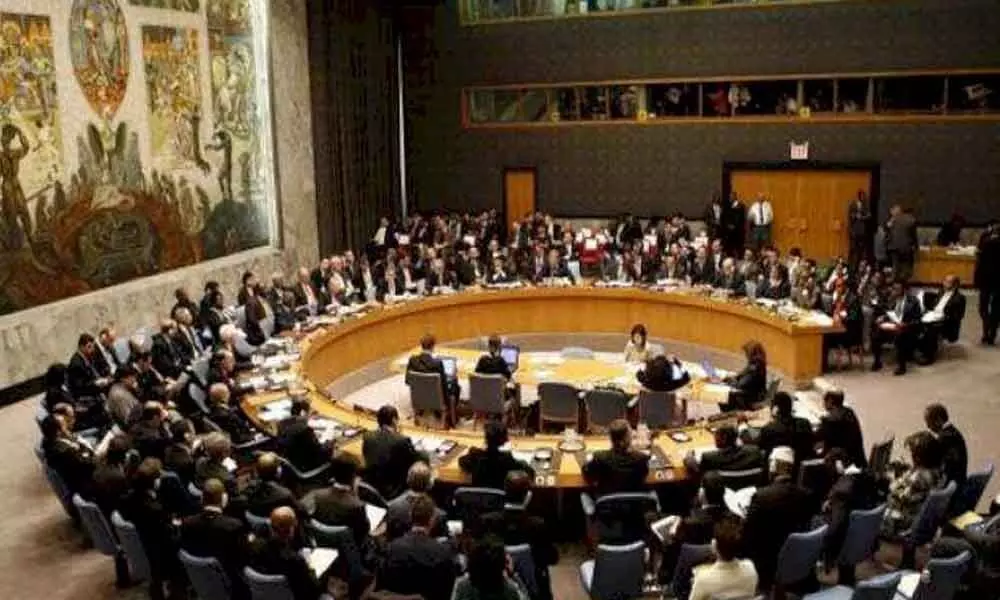India Urges UN Security Council To Effectively Integrate Women

India Urges UN Security Council To Effectively Integrate Women
India said advancing democratic structures and rule of law in post-conflict situations is instrumental to address the inequalities faced by women and to ensure their full and meaningful participation for peaceful and inclusive development.
United Nations: India has underscored the need for the UN Security Council to effectively integrate women, peace and security considerations into the sanctions regimes, including by listing terrorist entities involved in violence against women in armed conflicts.
"Violence against women and girls perpetrated by terrorists deserve our strong condemnation. Such women-targeted violence distorts the very basis on which civilised societies rest," India said in a statement to the Security Council open debate on Women, Peace and Security Thursday.
India said advancing democratic structures and rule of law in post-conflict situations is instrumental to address the inequalities faced by women and to ensure their full and meaningful participation for peaceful and inclusive development.
"It is also important that the Council strives to effectively integrate WPS (Women, Peace and Security) considerations into sanctions regimes, including by listing terrorist entities involved in violence against women in armed conflicts," India said.
India noted that conflict and humanitarian crises already hold women and girls back from progress.
"The further burdening of the health care and the economic fall-out of COVID-19 threatens to put women and girls in war-torn, fragile and humanitarian contexts at even higher risk," the country said.
India said that through the Action for Peacekeeping initiative, the Member States are committed to implement the Women, Peace and Security agenda by increasing the number of civilian and uniformed women in peacekeeping.
However, despite UN efforts, women form only 5.4 per cent of the military and 15.1 per cent of police in peacekeeping operations.
India reiterated its commitment to work for meaningful participation of women in peace and security issues, saying its experience of mainstreaming women's leadership and political participation will continue to inspire its actions.
Noting that while the Women, Peace and Security agenda has a transformative potential, India stressed that patriarchy, inequalities and discriminatory power structures inhibit effective conflict prevention, inclusive peace, women''s rights and participation.
Realising a transformative potential of the Women, Peace and Security agenda will require moving from verbal commitments to action and governments, the UN, civil society and other actors must implement relevant commitments across all thematic areas.
"States must identify and address barriers to women''s meaningful participation in the prevention and resolution of conflict, and in post-conflict peace-building efforts and programs," India said.
In 2007, India provided United Nations Mission in Liberia''s first all-female Formed Police Unit (FPU), which provided critical policing support deterring sexual and gender-based violence and helped rebuild safety and confidence among the population.
The FPU proved to be strong and visible role model to the Liberian women, gaining world-wide attention.
India underlined that it attaches utmost importance to representation of women in decision making positions. More than 1.3 million elected women representatives in the country lead in formulation and implementation of public policies at grassroots level.








